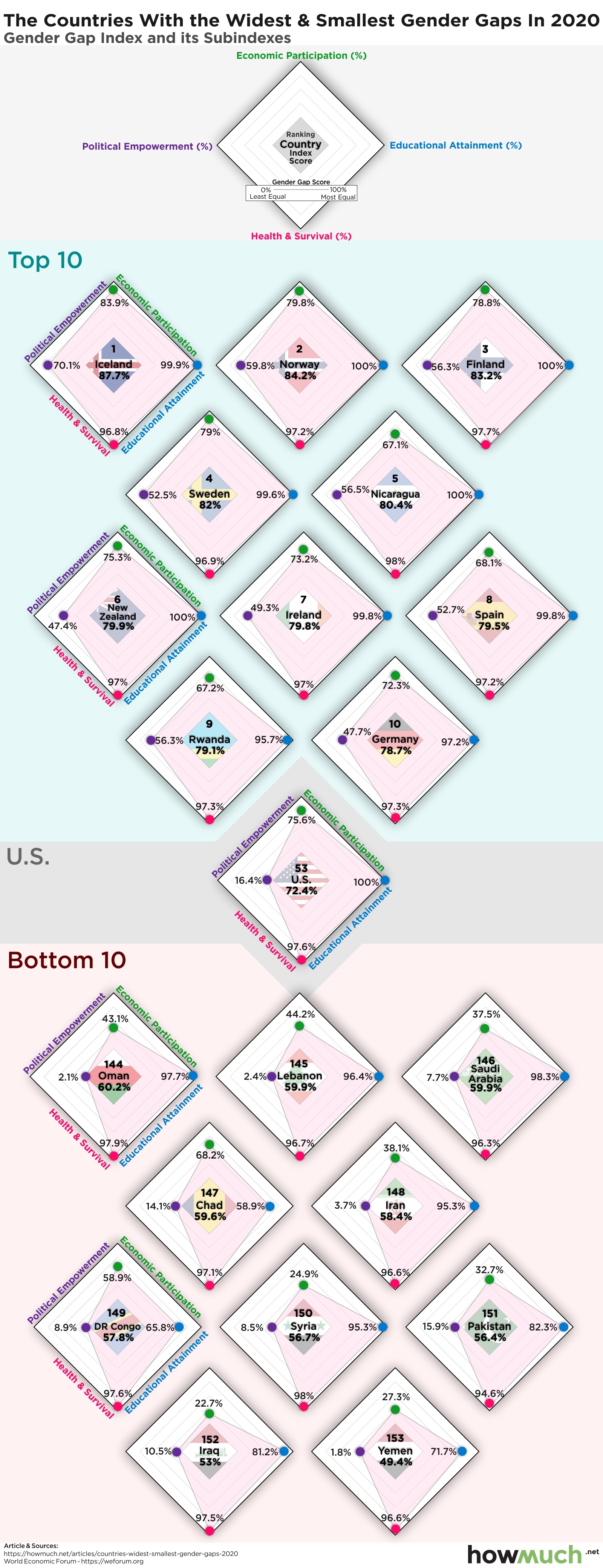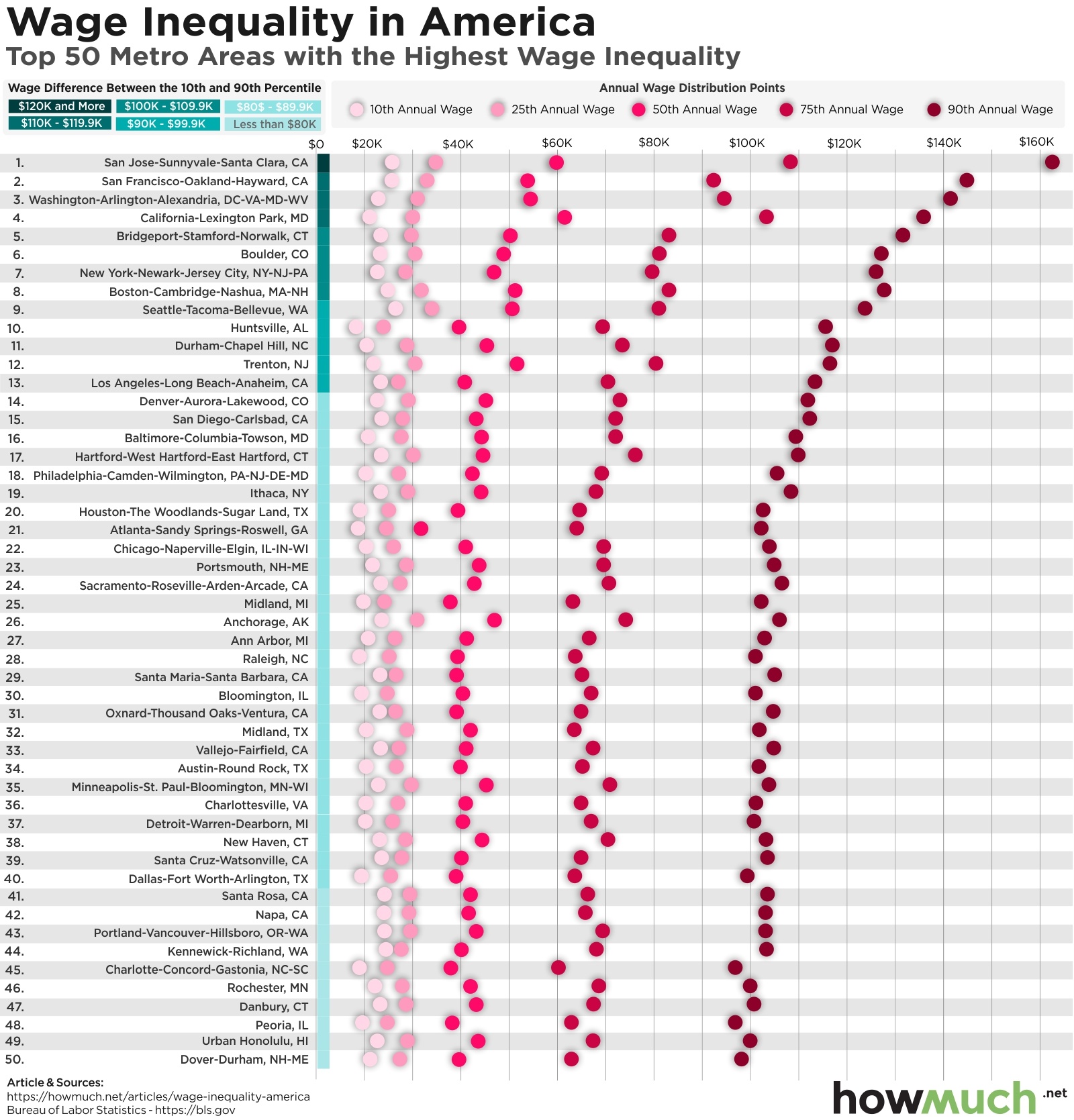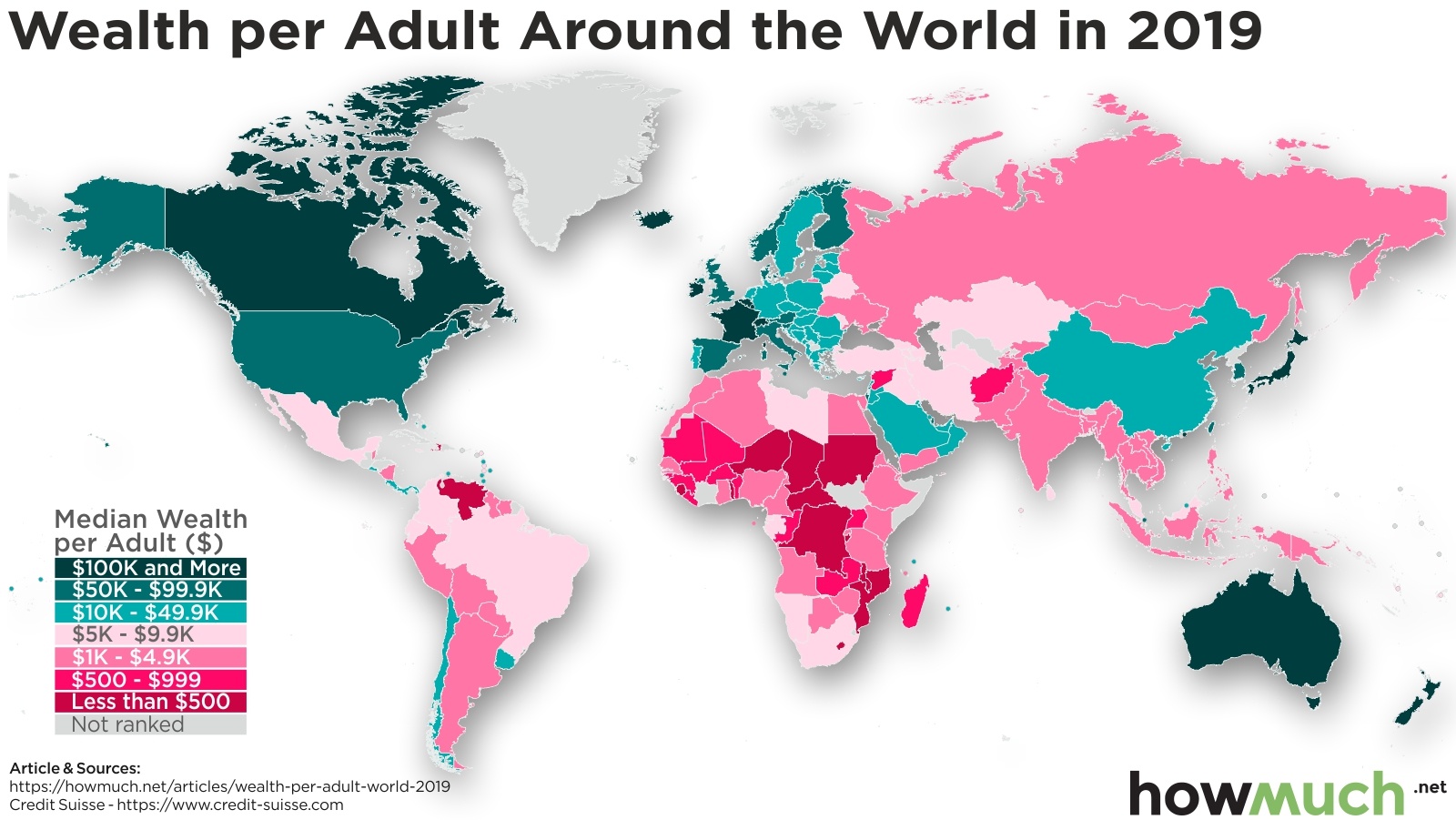
January 9th, 2020
The Economy
Social Issues
Monetary Policy
Wealth
Jobs
Which countries around the world lead the way in closing the gender gap and are they achieving their goals on all fronts? Our visualization lays out all the key elements for the top scorers.

January 8th, 2020
Personal Finance
Business
Wealth
These billionaires experienced some major changes in their bank accounts in 2019

January 7th, 2020
Personal Finance
Business
Social Issues
Wealth
Jobs
Income inequality is at an all-time high in America. This visualization breaks down the cities with the biggest gaps between high- and low-wage workers.

December 30th, 2019
Personal Finance
Business
The Economy
Social Issues
Wealth
What areas would you expect to drive U.S. economic output? Do more people equal more firepower, or does the location matter? Check out our county-level visualization to find out.

November 6th, 2019
Social Issues
Wealth
These maps show where the wealthy (and not so wealthy) live around the world

October 30th, 2019
Wealth
According to a new report from Credit Suisse, the U.S. has 39.8% of the world’s 46.8 million millionaires. See how the U.S. compares to the rest of the world.

October 2nd, 2019
The Economy
Social Issues
Wealth
Which major economic events have had the greatest impact on the world’s GDP growth? Our newest visualization offers a few answers.

July 17th, 2019
Wealth
The U.S is home to more millionaires and billionaires than any other country in the world. Here are the highest net-worth individuals in each state

June 13th, 2019
Wealth
The world has over 2000 billionaires. But each country can only claim one richest person. Read on to find out who is the richest person in your country? What industry made them rich? What regional similarities exist and how generous these people are with philanthropy.

March 28th, 2019
Personal Finance
Taxes
Wealth
As the April 15 deadline rapidly approaches, taxes are on national mind. Even though everyone’s tax situation is unique, there are a number of taxation trends at the state level which suggest that not everyone is paying their fair share